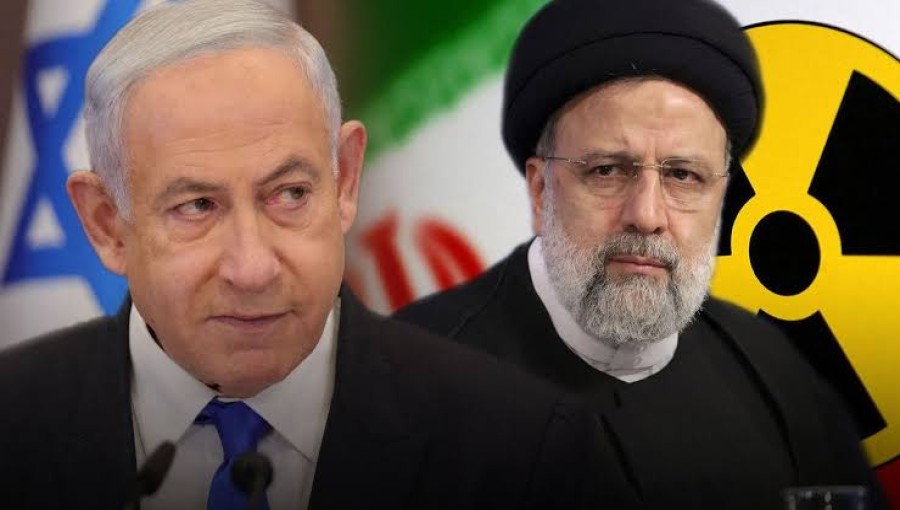Amid escalating tensions in the Middle East, Israeli Prime Minister Benjamin Netanyahu has issued a stern warning, vowing to counter any threat posed by potential Iranian retaliatory strikes. Netanyahu's statement comes in the wake of a recent missile attack on the Iranian embassy in Syria, further heightening regional tensions.
Speaking during a visit to an air base in central Israel on Thursday, Netanyahu emphasized Israel's readiness to address security challenges. "If someone harms us, we will also harm them," Netanyahu asserted, signaling Israel's firm stance in the face of perceived threats.
While Netanyahu underscored Israel's preparedness to meet its security needs, specific details regarding Tel Aviv's plans to thwart potential Iranian attacks were not disclosed by the Israeli leader.
The Wall Street Journal, citing US intelligence reports, has warned of the possibility of an imminent Iranian attack on Israel within the next 24 to 48 hours. This heightened alert has prompted Tel Aviv to take precautionary measures to prevent any potential assault on its soil.
International intelligence agencies and media outlets have reported Iran's alleged preparations for such an attack, raising concerns across the Middle East. However, sources close to the Iranian government have indicated that Tehran has yet to finalize any decision regarding the matter.
The recent missile strike on the Iranian consulate in Damascus, Syria, which claimed the lives of 13 individuals, including high-ranking military officials, has further fueled tensions between Iran and Israel. In response, Israel has bolstered its military readiness, including strengthening air and air defense systems and summoning reserve troops.
In addition to military preparations, Israel has taken diplomatic steps to mitigate potential risks, with reports indicating the temporary closure of at least 28 embassies or consulates and the evacuation of ambassadors assigned to various countries.
The ongoing escalation follows last year's significant military operations initiated by the Hamas government in Gaza, which resulted in a large-scale conflict with Israel. The aftermath of these events has further entrenched the enmity between Iran and Israel, exacerbating regional instability.
As tensions continue to simmer, the international community closely monitors developments in the Middle East, wary of any potential escalation that could further destabilize the region.





























Comment: